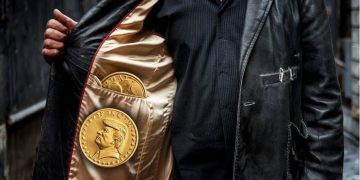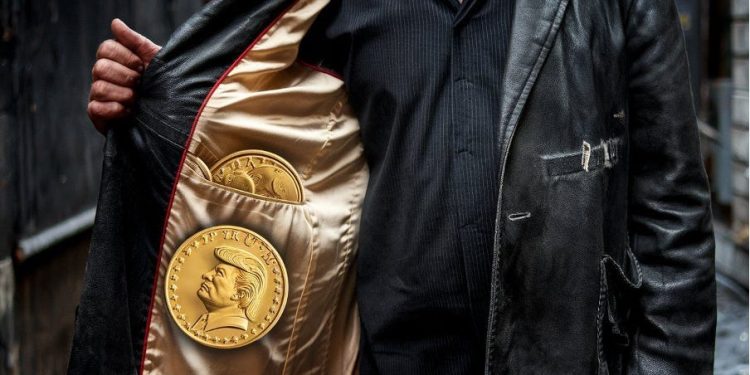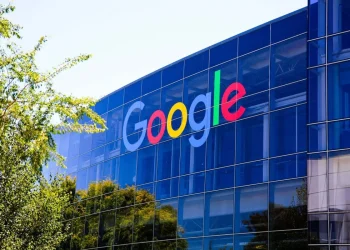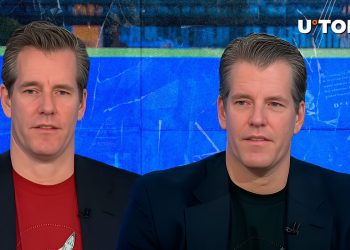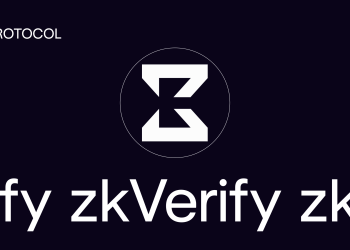January 17th saw the launch of the $TRUMP cryptotoken. Within hours of the launch, the entrepreneurs who developed the project had amassed a paper value over $50 billion — the value of the coins they awarded themselves as founders. The public, who actually paid for the coins, thereby driving up the value in the melee after the launch, held $15 billion worth on Jan 21st. By January 25th, the price had settled back down to about half of that.
A little digging uncovered a couple of companies that own 80% of the coins. One is called, unashamedly, Fight Fight Fight Inc. Not surprising when Trump owns 80% of all the coins available. He does not attempt to hide this because he was not President when the launch happened, so it was not illegal. He even punted the coin at the CryptoBall in Washington just before his inauguration, which could be described as shameless, but that adjective is probably a little flaccid.
The public holders of the coins have a right to vote on the future direction of the project, which of course means nothing, given that Trump owns the majority of the coins. Also, what project, one may ask. Oh, and coinholders also waive the right to take legal action if things go pear-shaped.
The coin has no utility whatsoever. It does not pretend to. It is a gambling chip with Trump’s face on it, and it was designed to make Trump and his associates rich before anyone else. Trump received tens of billions of dollars merely as a result of the public’s appetite to buy it. It is, of course, guaranteed to crash one day. Trump will not be president forever.
Something is clearly wrong with this picture. Amassing this amount of money from supporters and chancers a few days before taking the oath seems deeply unethical. Cynical at best. But perhaps it is just a case of willing buyer and seller, capitalism at its most robust. Everybody, we assume, went in with their eyes wide open. As of the time of writing, 85% of approximately 800,000 people who bought the coin have lost money.
If only it had stopped there.
But no, it was followed by the $MELANIA coin, launched the day after the inauguration (one wonders at the timing — was it to give the finger to all and sundry?). It is also a gambling chip with no utility and no long-term future, but it has enriched Melania by hundreds of millions of dollars. The coin is still alive, still trading. Which means that someone thinks its value will increase. Far be it from me to object to the First Lady wanting to make some money of her own, but really…
Then there is another company called World Liberty Financial, also controlled by Trump et al. It is a crypto company that has a thin veneer of respectability, claiming to be a leader in the field of DeFi, which it certainly is not. A perusal of the company’s website is sobering. The landing page features a hagiographic picture of Trump with his triumphant fist raised. It is followed by pages of, well, mostly hot air and promises.
The company appears to be little more than a vehicle for getting people to exchange their other coins (like Bitcoin) for a shiny new token called WLFI (the exchange mechanism is really the only functionality on the website). There are vague promises to customers that they can ‘lend and borrow,’ but the implication is clear — swapping your traditional crypto for their new coin proves the value of the underlying project (which has yet to offer anything of substance, not even a minimal whitepaper). The company has nothing new to offer the world of DeFi, other than the lustre of its shareholders, which include the Trump family and other well-known associates. It is all completely legal, but it has the strong odour of a scam.
There is a sharp irony to all of this.
Trump rode into office, at least partially, on the back of 50 million Americans who own crypto and who were rightly pissed off with the Biden administration’s irrational war against the industry. Trump promised this base of voters all sorts of goodies — deregulation, hints of a strategic reserve or sovereign fund inclusion, and key appointments of crypto bulls in high places. He has already delivered the last with Sacks, Musk, Bessent, and others. The industry has been waiting for this sort of warm regulatory embrace for nearly two decades. They will now get it.
But Trump and his family’s greed has spoiled crypto. Their actions have provided fresh ballast to the reigning view that crypto is a reckless industry engaged in a Bacchanalian orgy of hucksterism. Last week’s $1bn, 24-hour launch and collapse of a cryptotoken called $LIBRA in Argentina, which was punted by President Milei (who may or may not have had a stake), has only added fuel to the fire.
One of the more frustrating aspects of the now sprawling crypto industry has always been the wide perception of it as a new Wild West riddled with crime. This is not borne out by the facts, as I wrote here a week ago. Ever since the birth of the industry in 2010, there have been serious, careful and brilliant people innovating in every corner of the tech and its larger economic ecosystem, all offering alternatives to traditional pillars of financial power — alternatives to central banks, to commercial banks, to financial exclusion, to grasping middlemen and the dreary sludge of archaic processes of value exchange. Of course, there have been some criminals along the way.
But there is another class of miscreants who are a blight on everything this technology promises. They are not innovators or builders, and they are not outright crooks. They are tricksters and hucksters and confidence men (although not always men), using the time-honoured tools of deceptive marketing to extract funds from the innocent, the greedy, and the naive. Trump Inc.’s crypto projects fall squarely into this camp. There may be those who argue that there is some grand purpose behind Trump’s Johnny-come-lately arrival in crypto, but it is not evident anywhere. There are literally hundreds of DeFi and lend-borrow crypto projects out there — well-designed, mature, innovative, hardened, and useful. World Liberty Financial is none of those; it is simply Trump Inc. saying, ‘me too’ and trading on his name.
The crypto industry at large finally has the friends it needs in government, a chance to legitimise itself and to counter unfair opprobrium. Sadly, the taint of opportunism and deceit has not gone away. Trump has made it even worse. One can almost hear the entire crypto industry shouting in unison — ‘Thank you for your support. Now please stop hawking shitcoins’.
Steven Boykey Sidley is a professor of practice at JBS, University of Johannesburg, columnist-at-large for Daily Maverick, and a partner at Bridge Capital. His new book, “It’s Mine: How the Crypto Industry is Redefining Ownership,” is published by Maverick451 in SA and Legend Times Group in UK/EU, available now.
Originally published at https://stevenboykeysidley.substack.com.
